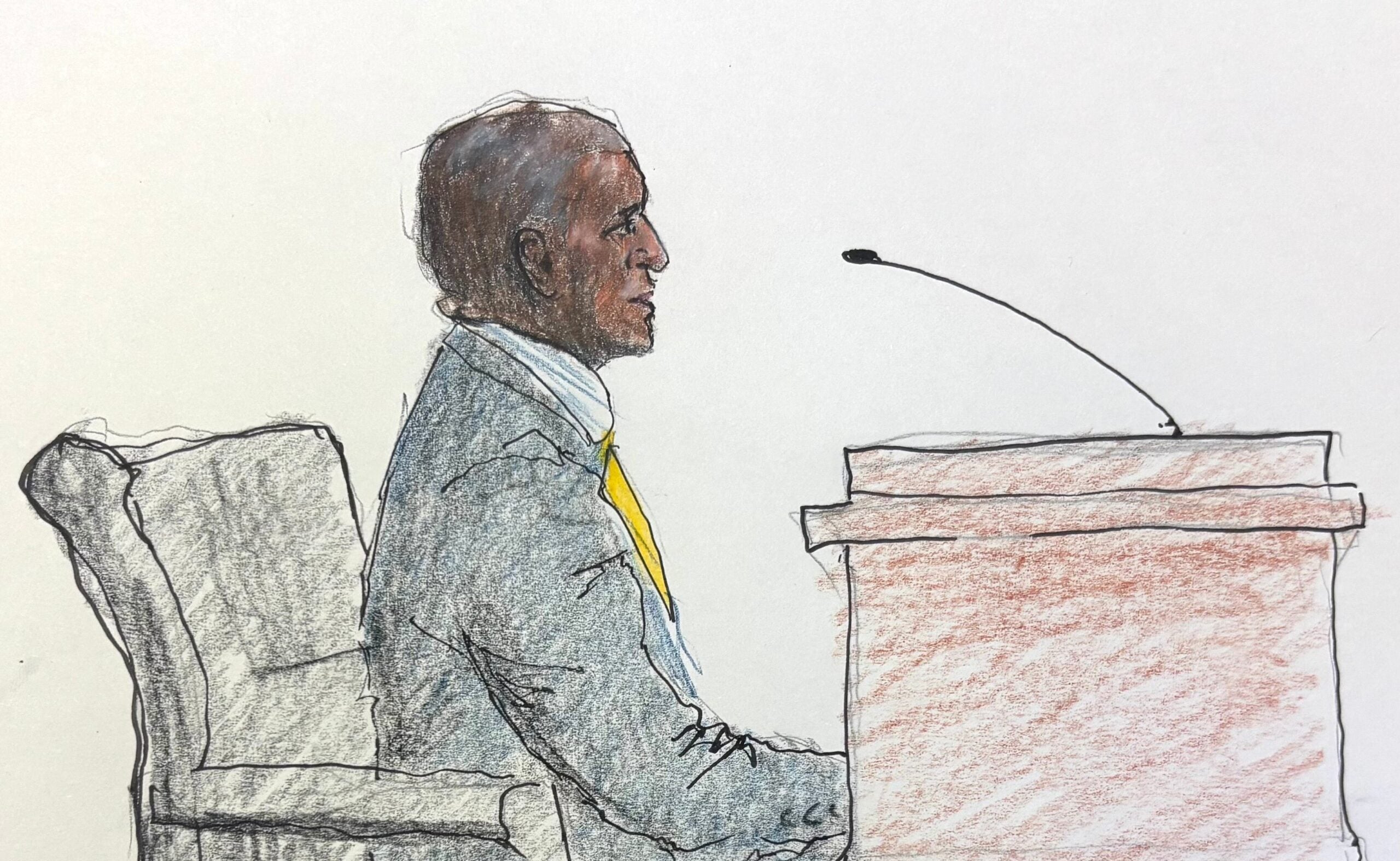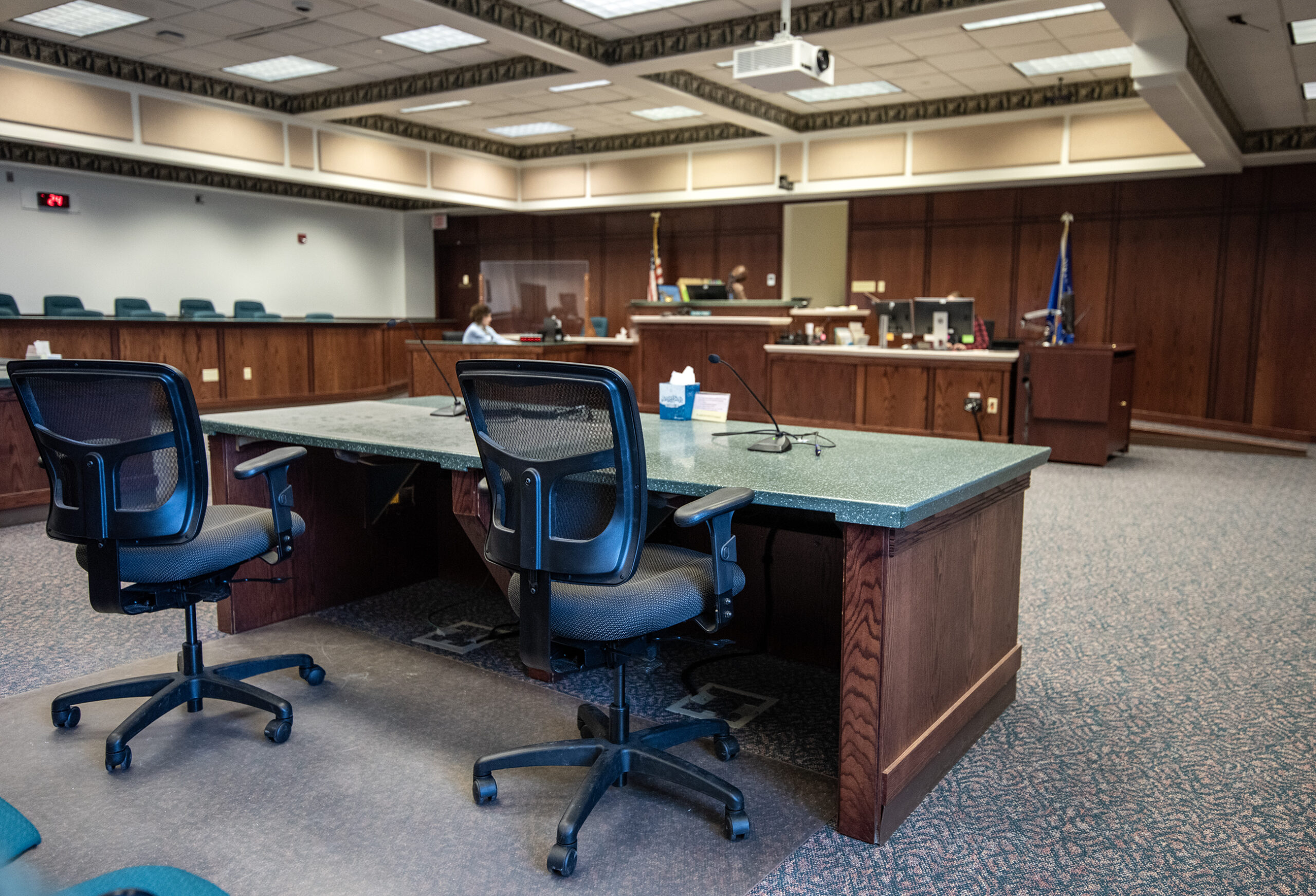Criminal justice groups are banding together to outline their priorities for Wisconsin’s next two-year budget.
Among their requests: pay raises of roughly $8 an hour for public defenders and local prosecutors.
The joint wish list is backed by Wisconsin’s Department of Justice, its Director of State Courts, the Wisconsin State Public Defender’s Office, the Association of State Prosecutors and all 71 of Wisconsin’s elected district attorneys.
News with a little more humanity
WPR’s “Wisconsin Today” newsletter keeps you connected to the state you love without feeling overwhelmed. No paywall. No agenda. No corporate filter.
Wisconsin struggles to compete with the private sector when hiring lawyers, said Adam Plotkin, legislative liaison to the state’s Office of the Public Defender. That’s true “on both sides of the courtroom,” he said, for both the public attorneys who represent low-income clients and the district attorneys who prosecute crimes at the county level.
“No one goes into any of this work, prosecution side or the defense side, thinking they’re going to get rich,” Plotkin said, “They’re driven by a mission. But they want to be able to make sufficient money to live and have a house and car and a family and pay off pretty significant student debts for a degree that’s required to do the work.”
The proposal released this week by the criminal justice coalition would use $13.6 million over two years to raise hourly pay for assistant state public defenders from $26.70 to $35.
The starting wage for assistant public defenders would become $35 an hour during the first pay period of fiscal year 2024, up from $27.24 an hour. Assistant district attorneys and deputy district attorneys at higher levels of the pay scale would also see $7.76 hourly increases.
Coalition asks for more support staff, higher pay for private attorneys defending low-income clients
The Public Defender’s Office is also asking for nearly $8.6 million over two years to hire 67 full time-equivalent support staff positions.
Currently, the office has about one support staff for member every two attorneys, the inverse of rates of many other criminal justice organizations, Plotkin said. As a result, public defenders are spending less time on direct client representation and more time on administrative tasks like watching every minute of potentially useful video evidence.
“What that winds up meaning is staff attorneys are doing almost every aspect of a case from filing motions to scheduling appearances to putting together sentencing memos,” Plotkin said.
The coalition’s proposal also would raise pay for private attorneys who are referred to cases when the public defender’s office can’t take them on, either because not enough staff members are available or because staff have conflicts of interest.
Currently, that rate is $70 an hour, after being increased by state lawmakers in 2019-22 budget from $40 an hour, which was at the time the lowest level in the nation.
But even at $70 an hour, Wisconsin struggles to find attorneys who will agree to take the cases. When private attorneys aren’t available, counties are required to appoint attorneys, and Wisconsin’s Supreme Court voted in 2018 to raise that pay rate from $70 to $100 an hour.
“This, coupled with the pandemic and workload impact on private bar attorneys, has significantly decreased the number of certified private bar attorneys and the number of cases that they will accept,” the coalition’s proposal said, “A lack of private bar attorneys delays the appointment of cases which negatively impacts clients, victims and ultimately public safety.”
The coalition suggests that private attorneys defending low-income clients make $125 an hour for in-court work, $100 an hour for out-of-court work, and $50 an hour for travel, at a cost of $24.5 million over two fiscal years.
Wish list heads to governor, then Wisconsin’s Legislature
Gov. Tony Evers will make his budget recommendation early next year, and based on recent experience, lawmakers could approve a spending plan before the end of June.
State agencies, including the DOJ and the Public Defender’s Office, submitted their own budget requests to the governor’s Department of Administration earlier this fall. But during the last several budget cycles, many of those agencies have starting coming together to release an additional, streamlined list of budget priorities that represents their shared goals of advancing criminal justice, Plotkin said.
“(What) we had always heard before we got together was kind of feedback from the Legislature that, you know, first one group comes in then the other than the other, and it all sounds like it’s a competing request,” Plotkin said. “So that was (how we arrived at) the concept of putting together kind of a comprehensive request, and I think what we heard from legislators is they appreciate seeing how all the different pieces fit together and how investing in one part actually is an investment in the entire system.”
Editor’s note: This story has been updated to correct the ratio of support staff to attorneys in the Wisconsin Public Defender’s Office.
Wisconsin Public Radio, © Copyright 2025, Board of Regents of the University of Wisconsin System and Wisconsin Educational Communications Board.






